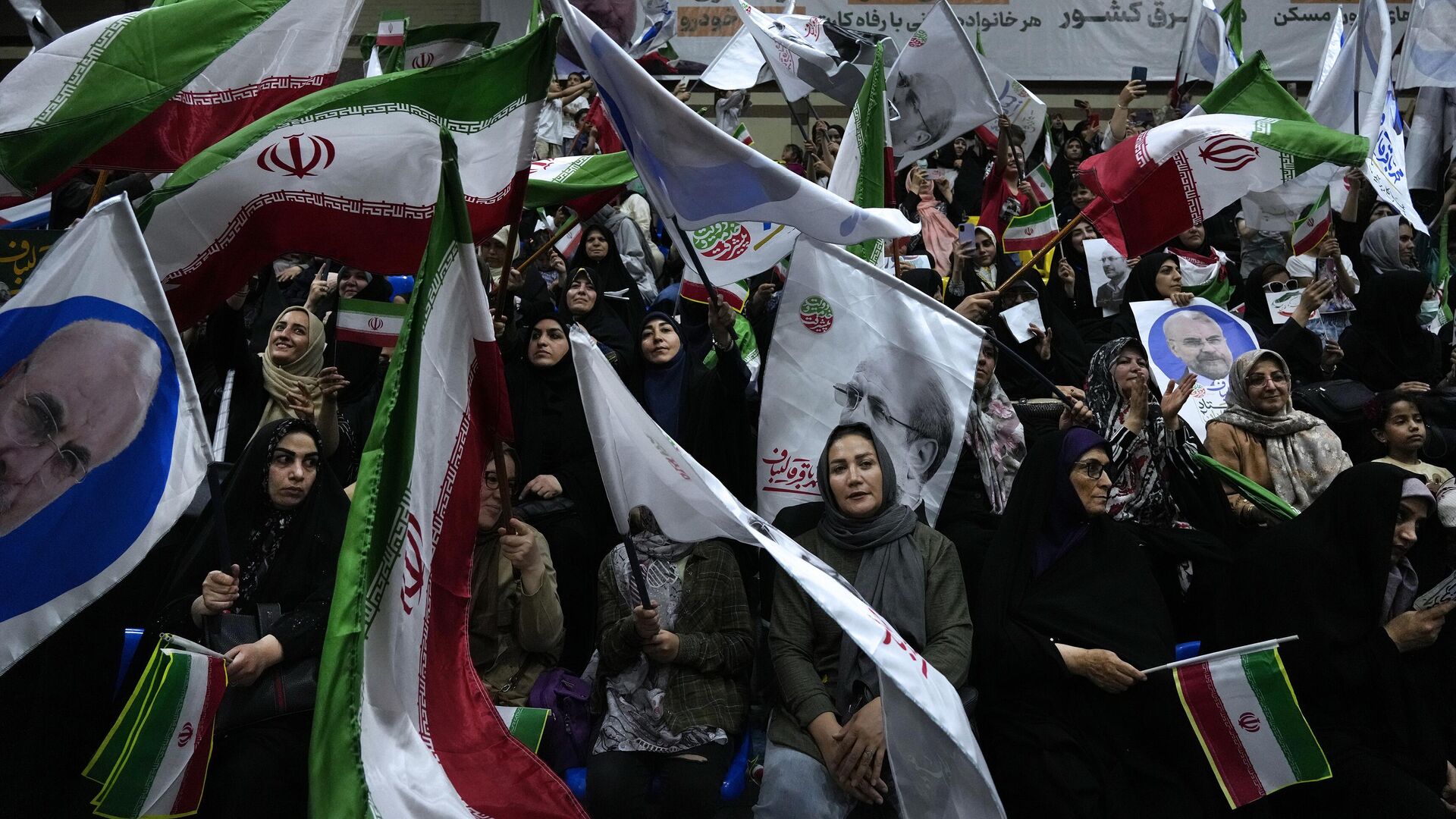https://en.sputniknews.africa/20240627/how-are-irans-presidential-elections-going-1067264000.html
The Pulse of Iran: How do Presidential Elections Work?
The Pulse of Iran: How do Presidential Elections Work?
Sputnik Africa
Following the death of Iran's President Ebrahim Raisi in a plane crash on May 19, the country will hold an extraordinary 14th presidential election on June 28. 27.06.2024, Sputnik Africa
2024-06-27T18:10+0200
2024-06-27T18:10+0200
2024-06-27T18:25+0200
iran
middle east
ebrahim raisi
international
former president
presidential election
president
elections
minister
politics
https://cdn1.img.sputniknews.africa/img/07e8/06/1b/1067263831_0:115:3435:2047_1920x0_80_0_0_bf00c464f3eaffcc8685035c188647de.jpg
According to the Iranian Constitution, the president ranks second only to the Supreme Leader, who is currently Ali Khamenei. The president ensures that the constitution is followed and directs the executive branch in all areas except those under the direct control of the Supreme Leader.The president's tenure is four years, and no one may serve more than two consecutive terms. According to the constitution, the president must be elected from among religious-political figures who meet the following criteria: "of Iranian origin, Iranian citizenship, administrative and organizational skills, a reputable background and piety, religious adherence, belief in the principles of the Islamic Republic, and adherence to the official religion of the country."Furthermore, Iranian law requires applicants to be between the ages of 40 and 75, have no legal limits on their rights, have at least a master's degree, and have four years of experience in public administration or similar sectors, as well as no criminal record.Currently, there are four candidates in the presidential race: All competent Iranian residents above the age of 18 are eligible to vote, and the voting lasts for ten hours. The president is elected by an absolute majority of votes. If no candidate receives more than 50% of the votes in the first round, a second round of voting will take place on July 5. The second round will include only the two candidates who received the most votes in the previous round.
iran
middle east
Sputnik Africa
feedback@sputniknews.com
+74956456601
MIA „Rossiya Segodnya“
2024
News
en_EN
Sputnik Africa
feedback@sputniknews.com
+74956456601
MIA „Rossiya Segodnya“
Sputnik Africa
feedback@sputniknews.com
+74956456601
MIA „Rossiya Segodnya“
iran, middle east, ebrahim raisi, international, former president, presidential election, president, elections, minister, politics
iran, middle east, ebrahim raisi, international, former president, presidential election, president, elections, minister, politics
The Pulse of Iran: How do Presidential Elections Work?
18:10 27.06.2024 (Updated: 18:25 27.06.2024) Following the death of Iran's President Ebrahim Raisi in a plane crash on May 19, the country will hold an extraordinary 14th presidential election on June 28.
According to the Iranian Constitution, the president ranks second only to the Supreme Leader, who is currently Ali Khamenei. The president ensures that the constitution is followed and directs the executive branch in all areas except those under the direct control of the Supreme Leader.
The president's tenure is four years, and no one may serve more than two consecutive terms. According to the constitution, the president must be elected from among
religious-political figures who meet the following criteria: "of Iranian origin, Iranian citizenship, administrative and organizational skills, a reputable background and piety, religious adherence, belief in the principles of the Islamic Republic, and adherence to the official religion of the country."
Furthermore, Iranian law requires
applicants to be between the ages of 40 and 75, have no legal limits on their rights, have at least a master's degree, and have four years of experience in public administration or similar sectors, as well as no criminal record.
Currently, there are four candidates in the presidential race:
The current Speaker of Parliament, Mohammad Bagher Ghalibaf;
Former Minister of Interior and Justice, Mostafa Pourmohammadi;
Former Minister of Health and Medical Education and current member of Parliament, Masoud Pezeshkian;
The Supreme Leader's representative in the Supreme National Security Council, Saeed Jalili.
All competent Iranian residents above the age of 18 are eligible to vote, and the voting lasts for ten hours. The president is elected by an absolute majority of votes.
If no candidate receives more than 50% of the votes in the first round, a second round of voting
will take place on July 5. The second round will include only the two candidates who received the most votes in the previous round.

